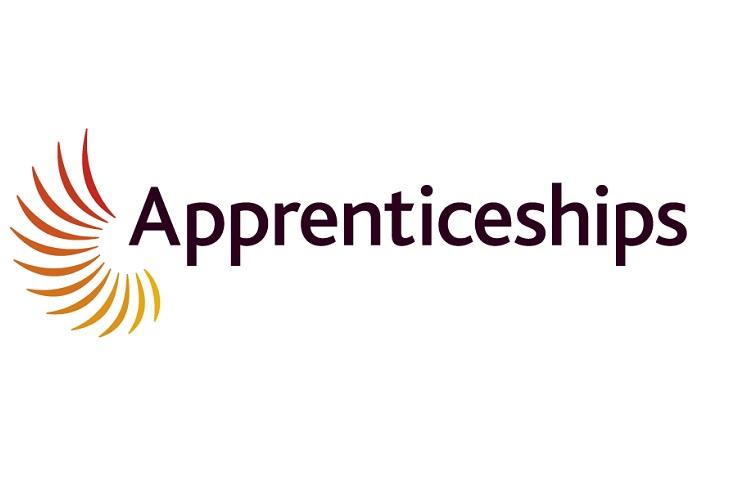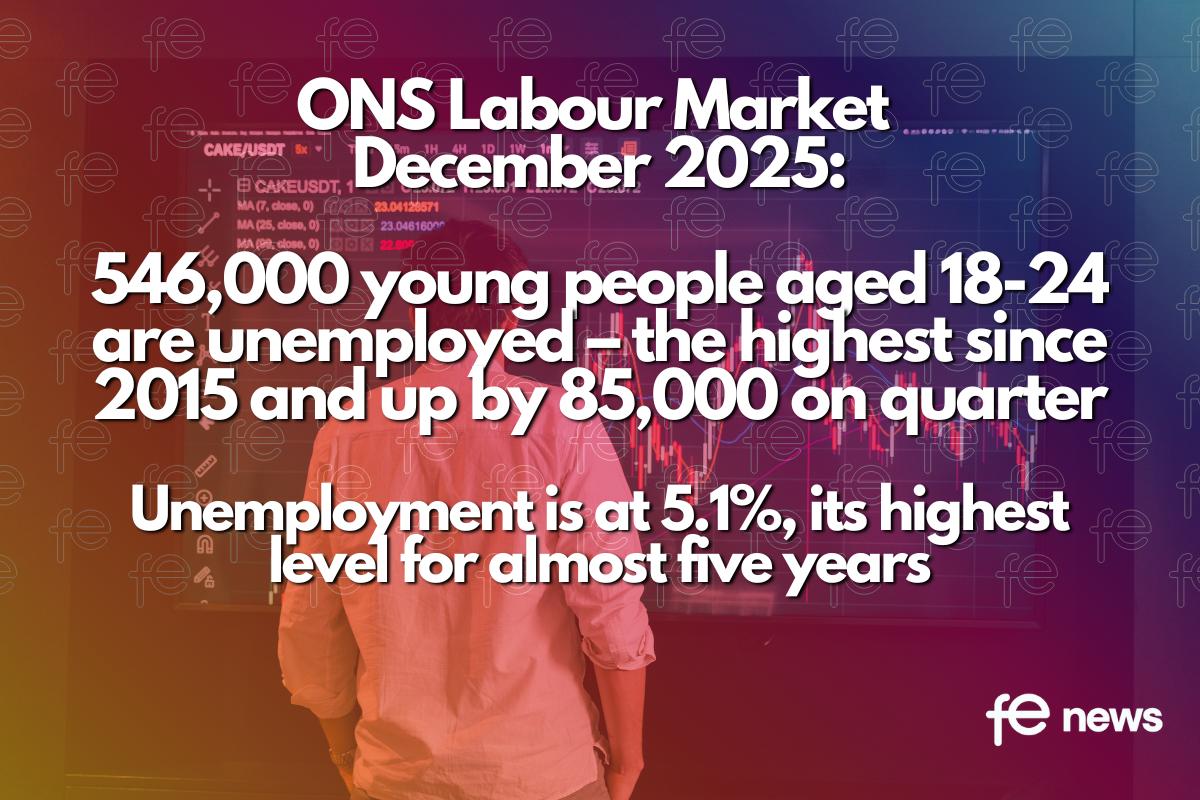Apprenticeships and traineeships: August 2020 – Sector Response

The Coronavirus crisis has led to 47,770 fewer #apprenticeship opportunities, with opportunities for young people being hit hardest
This release is an update to the Apprenticeships and traineeships: July 2020 statistics publication and is a repurposed transitionary approach during the coronavirus (COVID-19) outbreak. Please see the document above, ‘Apprenticeships and traineeships: main text – August 2020 update’, for more information.
We have updated official statistics within the publication to provide:
- the latest monthly apprenticeship starts to June 2020
- the number of apprenticeship service commitments as reported at the end of July 2020
- new, separate tables on apprenticeship starts as first reported for the month of July
The data for June is provided for transparency during the coronavirus (COVID-19) outbreak and would not normally be released due to high levels of underreporting at this point in the year (for example July starts as first reported at this point in 2019 were only 75.9% of the final figure). Additionally, the pandemic will have had an unknown impact on provider reporting, which may mean reporting has been affected further. Therefore extra care should be taken in interpreting these data.
This new data shows that apprenticeship starts have fallen by 47% compared to last year. There were just 53,530 apprenticeship starts between 23 March and 31 July this year, compared to 101,300 over the same period last year.
The data – released just days after young people received their A Level, GCSE and vocational results – shows the decline in apprenticeship starts for young people is even steeper. Apprenticeship starts among those aged 16-18 group plummeted from 16,390 between March and July last year, to just 5,230 this year, a decline of 68%.
Last month the Chancellor announced a hiring incentive to help reverse the decline in apprenticeship starts and to create more opportunities for young people. Employers taking on apprentices aged under 25 before the end of January will be entitled to a grant of £2,000.
Sector Response
Emily Jones, Head of Research at Learning and Work Institute said;
“Apprenticeship statistics released today once again highlight the scale of the challenge ahead, with a 47% drop in starts compared to last year. Young people leaving education this summer have been hit with a double whammy of disrupted learning and a difficult labour market. A 68% fall in apprenticeship starts among 16-18 year olds is particularly concerning given the long-term impact of youth unemployment.
“While we welcome the government’s investment in hiring incentives for employers, this alone is unlikely to be enough to reverse the decline. Urgent action is needed to boost apprenticeships and wider education and employment opportunities for young people.
“We have called for a Plan for Jobs to reverse the unprecedented rise in unemployment and help to get Britain back to work. This should include a Youth Guarantee to ensure that all young people can access a job, an apprenticeship or training opportunity.”
Andy Norman, Research Analyst, Centre for Progressive Policy commented:
“Despite what looks like a slight improvement in July, today’s apprenticeship data is a stark reminder that training opportunities have been decimated since the outbreak of Covid-19, particularly for young people. Combined with evidence that young people are more likely to lose their job as a result of the crisis, we risk an unprecedented surge in youth unemployment unless swift action is taken.
For young people in particular, missing out on an apprenticeship and spending time locked out of the labour market at this crucial stage of their lives can have a lasting impact on future opportunities and living standards.
Unfortunately, current levels of government support for businesses to take on new apprentices do not match the scale of the challenge the apprenticeship system faces. The £2,000 bonus payment for young apprentices represents a subsidy of just 13% of the first year of wages, which employers report will have little impact on their recruitment decisions. We have called for the subsidy to be raised to cover at least 50% of young apprentices’ wages for the duration of the apprenticeship. The government must be bolder in its action to protect training opportunities for young people or face creating a lost generation of learners and skilled workers.”
Apprenticeships and traineeships: August 2020
Apprenticeship service data as at July 2020, and apprenticeship starts to June 2020, with separate July 2020 starts covering the coronavirus (COVID-19) outbreak.
Documents

Apprenticeships and traineeships main text: August 2020 update
PDF, 347KB, 12 pages
Apprenticeship and levy statistics: August 2020 main tables
MS Excel Spreadsheet, 122KB
Apprenticeship and levy statistics: August 2020 main tables
ODS, 78.8KB
This file is in an OpenDocument format
Apprenticeship starts for July 2020, reported to date
MS Excel Spreadsheet, 74KB
Apprenticeship starts for July 2020, reported to date
ODS, 42.3KB
This file is in an OpenDocument format
Vacancies and adverts posted on the Find An Apprenticeship website, by level, from June 2018 to July 2020
MS Excel Spreadsheet, 45.4KB
Vacancies and adverts posted on the Find An Apprenticeship website, by level, from June 2018 to July 2020
ODS, 23.6KB
This file is in an OpenDocument format

Apprenticeship and traineeships: August 2020 metadata for underlying data files
PDF, 64.8KB, 2 pages
Unrounded raw data set (framework, standard, SSA, level, age): July 2020, reported to date
List of supplementary files published during the 2019 to 2020 academic year: August 2020 update
MS Excel Spreadsheet, 171KB
Apprenticeship and traineeships: August 2020 pre-release access list
HTML
Details
Due to the impact of coronavirus (COVID-19) on further education and apprenticeship training activity, and the reporting of data, the Department for Education (DfE) replaced the planned further in-year statistics from the Apprenticeship and traineeships: April 2020 release onwards. We will publish the end-of-year releases normally published in November, but replacing the remaining in-year dates enables us to provide releases with more relevant information to cover the period affected by the pandemic.
We intend to make headline statistics such as apprenticeship starts available on a regular basis, and to similar timescales to those currently, but we intend to repurpose our releases to focus on the most relevant information available. Please see the main text document for more information on the replacement to publications.
Email [email protected] to tell us about your key data needs. We’d particularly like to know how often you need data and how you’d like it broken down. For example, by age, level and individual framework or standard.
Read Statistics at DfE to find out about any changes.
This release is an update to the Apprenticeships and traineeships: July 2020 statistics publication and is a repurposed transitionary approach during the coronavirus (COVID-19) outbreak. Please see the document above, ‘Apprenticeships and traineeships: main text – August 2020 update’, for more information.
We have updated official statistics within the publication to provide:
- the latest monthly apprenticeship starts to June 2020
- the number of apprenticeship service commitments as reported at the end of July 2020
- new, separate tables on apprenticeship starts as first reported for the month of July
The data for June is provided for transparency during the coronavirus (COVID-19) outbreak and would not normally be released due to high levels of underreporting at this point in the year (for example July starts as first reported at this point in 2019 were only 75.9% of the final figure). Additionally, the pandemic will have had an unknown impact on provider reporting, which may mean reporting has been affected further. Therefore extra care should be taken in interpreting these data.
For commentary and statistics relating specifically to the latest full academic year (2018 to 2019) please see Further education and skills: November 2019.
We may amend the content and timing of these statistics depending on user feedback and data reporting.











Responses